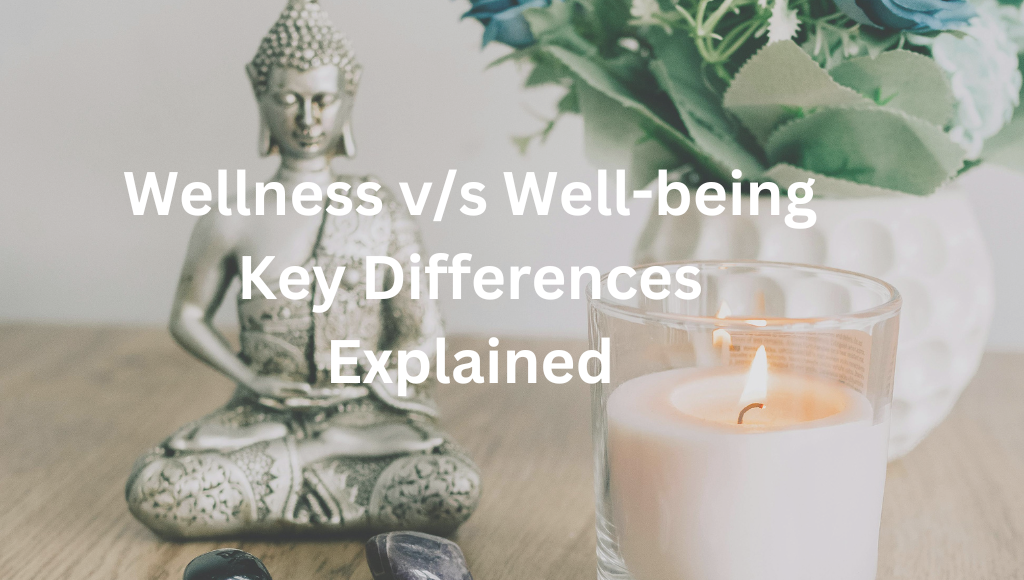
Emotional wellness is more than how we feel. It includes how we perceive others’ feelings as well. In other words, it enables us to establish meaningful connections with other people, enhancing health and reducing stress. It is a component of personal development that strengthens self-confidence and increases resilience.
In this blog, we will first explore the importance of emotional wellness and then look for practical ways to improve it step by step.
What is emotional wellness?
One definition of emotional wellness is the ability to have high levels of self-control over one’s feelings, be assertive, show kindness, and possess empathy. In practice, this means being able to talk and act in relation to one’s emotions without being overwhelmed, even in tough situations.
For instance, in stressful situations with high levels of emotional wellness, one can control oneself and one’s emotions. Instead of succumbing to the stress, one can disassociate and practice stress relief.
Why is emotional wellness essential?
The emotional aspect afflicts every part of one’s life, including how they relate to and interact with everyone around them. In this regard, here are some ways to appreciate why such emotional soundness is crucial:
1. Better Relationships: Emotions allow one to comprehend other people’s feelings, which allows families and friends to share meaningful conversations.
2. Less Stress: Emotions tend to dictate how one behaves, but with proper management, it would be much easier not to be affected by stress.
3. Improved Health: Harmful stressors do not only affect the emotional aspect of human life but also the body. Therefore, emotional well-being is fundamental to living a healthy life.
4. Happiness and confidence: Control has been proven to increase one’s confidence, and control of one’s emotions is associated with happiness.
Indicators of emotional well-being
What do you feel when, and then becomes the question, has one stabilized emotionally? To assist one in this evaluation, the following principles can be helpful:
- You appreciate the worth of your feelings.
- You lose the confrontation as you can handle emotion positively.
- You cope with stress and life together perfectly.
- You thrive on people’s emotions and their heartfelt issues.
There is a general air of positivity around you, no matter where or how difficult the situation seems.
If these ring bells, you are on the right path to emotional well-being!
How to Work Towards Emotional Wellness
Working on one’s emotional wellness can be tiresome, but the result can be worthwhile with continual effort. Here are a few tips for better control over your emotions.
1. Know Your Emotions First
As said, every road has its first step; in this case, it is to comprehend your emotions as they are. Put effort into observing your feelings and what leads you to such feelings. For instance:
- If you feel joyous, trace back the cause.
- When sad, try and comprehend the reason behind it.
- This self-awareness is the foundation of experiencing your emotions non-judgmentally.
2. Do Not Repress Your Emotions
Repressing emotions can lead to anger and stress, which is not good. Relying on those for long is incorrect; learn to channel them through better methods. Here are a few examples:
- Talk to Someone: Venting those thoughts to a close friend, a family member, or even a therapist can be helpful.
- Write It Down: Journaling can be a tool for repressed emotions. It allows a person to examine and determine the rationale behind their feelings.
- Use Creative Outlets: Painting, music, or dance can be ideal ways to express yourself when you can’t use words.
3. Rituals of Self-Care
As a reminder concerning the importance of one’s well-being, it is worth noting that self-care is necessary. One feels rejuvenated and can deal with his or her day-to-day problems and even stress on their own, so try these out:
- Find time to rest so that you can be re-energized.
- Ensure that you always have a well-balanced meal at your optimal convenience.
- Strike a balance between working out and functional routine activities to significantly improve one’s disposition.
- Set aside time to engage in enjoyable activities.
4. Favorable Bonds
There’s no doubt that people and the bonds you form with them are paramount and aid in a greatly stressful situation, such as when dealing with emotional wellness. Therefore, eschew negative people or those who do not understand you; surround yourself with positive ones instead. Maintain a healthy flow of conversation and be sure to listen to others. People help people; this is especially true during tough times.
5. Stress Management Techniques
Stress can never be avoided; however, knowing how to control it is vital for maintaining emotional wellness. There are many easy ways to deal with stress in a daily routine:
- Keep Relaxing: Deep breathing and meditation or yoga can alleviate stress.
- Know when to step back: Practice distancing yourself from troublesome situations and replacing your action or thought with an enjoyable one.
- Be systematic: A simple habit of planning your activities can stop you from feeling too busy.
6. Be more compassionate to people around you
Being able to step into an individual else’s shoes significantly helps build potential trust in a given relationship. Hence, it is crucial to refrain from speaking and try to focus on the person when he or she talks; this is a way of learning the art of compassion. Being compassionate with other people will also positively benefit your emotional wellness.
7. Seek Help When Necessary
If things seem too difficult, reaching out for assistance should cause no stress. It is, in fact, advisable to consult a counselor or nice therapist. Understand this: taking help is not a sign of weakness, but it’s showing strength.
Self-acceptance and emotional wellness
Self-acceptance and learning to love your imperfections are vital parts of emotional wellness. In all aspects, drenched in weaknesses, making mistakes is an essential part of life, but let us try not to neglect our successes and grow from them instead. Most importantly, do not be harsh on yourself, and please stop the habit of looking at where other people are in life.
Simple Daily Habits for Emotional Well-Being
To some extent, take these as small things that you can work on to ensure your emotional health.
- Pronounce three phases of things you are grateful for every morning.
- Train yourself to pay more attention to what you have to tackle now.
- Before bed, kindly ask yourself how you’re feeling and what that feeling represents.
- Utilize boundaries to help manage your emotions. Learn how to say no when necessary.
- Take some time to wind up your day with thoughtful and reflective writing. Timelines and emotions of your day.
Final Thoughts
Nutrafol’s supplements address hair loss issues by promoting healthy hair growth through a holistic approach and tackling problems across all barriers. Their official website says that emotional wellness is the key pillar of all the services they provide.
By focusing on internal well-being rather than external procedures, many in the community will likely reconsider their normalized practices. Nutrafol’s focus on internal and mental health should also indicate high potential growth opportunities in the long term.



